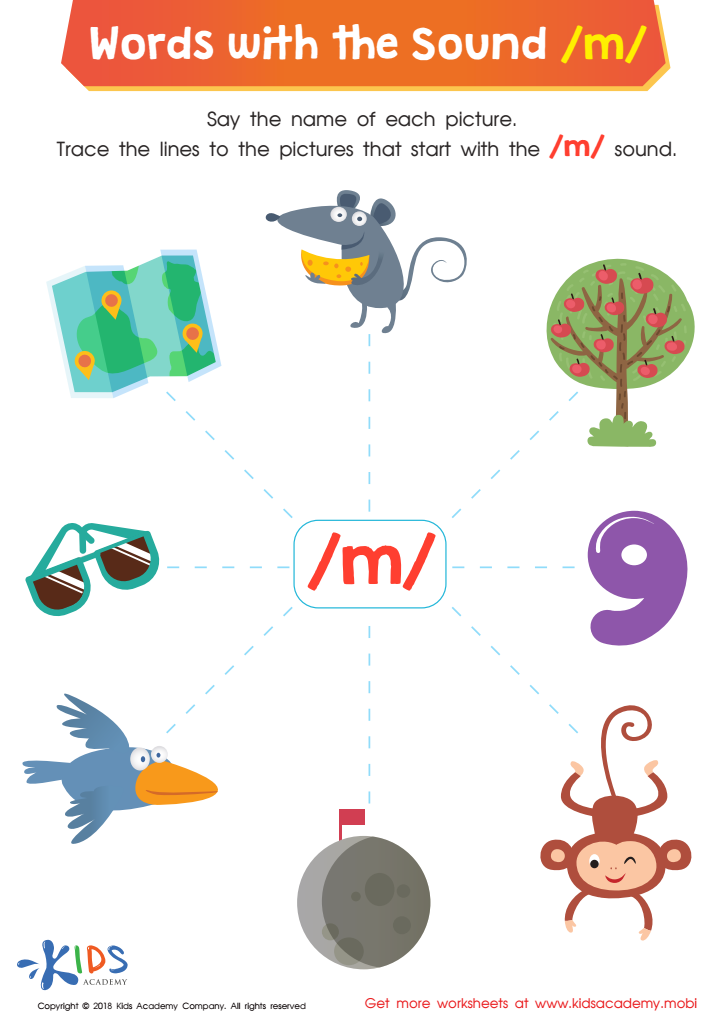Phonics practice Consonants Worksheets for 5-Year-Olds
4 filtered results
-
From - To
Discover engaging Phonics Practice Consonant Worksheets, expertly designed for 5-year-olds! Our interactive and fun activities help young learners master consonant sounds and improve their reading skills. Each worksheet features colorful illustrations and relatable examples, making phonics exciting and accessible. From tracing letters to identifying consonants within words, these worksheets encourage phonetic awareness through playful learning. Ideal for parents and educators, they offer a wonderful way to reinforce classroom lessons at home. Designed to captivate young minds, our consonant worksheets not only foster language development but also nurture a lifelong love for reading. Start your phonics journey here and watch your child thrive!


Twin Onset Worksheet


Words with sound p Reading Worksheet


Words with sound f Reading Worksheet


Words with Sound M Reading Worksheet
Phonics practice, particularly focusing on consonants for 5-year-olds, is crucial for early literacy development. At this age, children are at a pivotal stage where they begin to connect sounds with letters, laying the groundwork for reading skills. Consonants are foundational; they help children decode words and understand how language works.
When parents and teachers prioritize phonics, they create a structured environment that supports a child’s ability to recognize and articulate different consonant sounds. This practice enhances phonemic awareness, helping children distinguish sounds in words, which is critical for reading fluency. By familiarizing their children with consonants, they can better understand spelling patterns and vocabulary, paving the way for effective communication.
Moreover, engaging in phonics activities promotes cognitive development, encourages curiosity about language, and builds confidence as children learn to read on their own. It also fosters a love for reading and a sense of achievement. Regular phonics practice can alleviate future struggles in literacy, ensuring children develop the skills necessary for academic success. In essence, prioritizing consonant phonics is an investment in a child’s foundational literacy skills and overall educational journey.
 Assign to My Students
Assign to My Students










